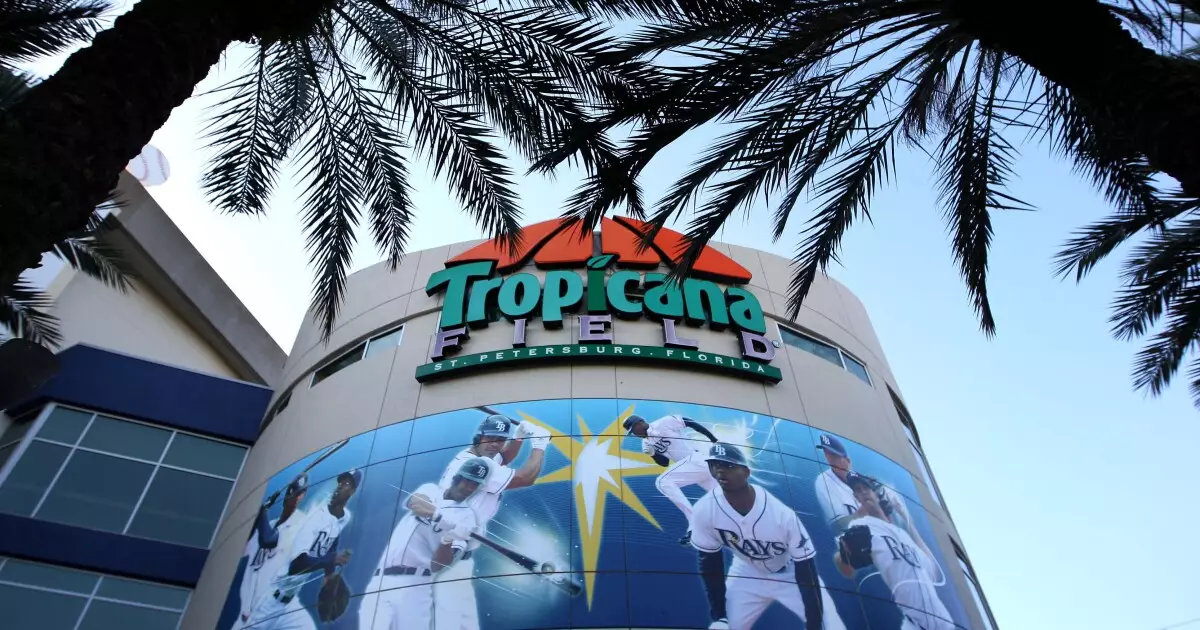In a significant development for the Tampa Bay Rays, the Pinellas County Commission has committed to financing the construction of a new professional baseball stadium through the approval of $312 million in bonds. While this move marks a pivotal step forward for the Rays and the local community, it also resurrects an ongoing concern regarding the financial responsibility of the team and its reliance on public funding. Delaying the project has led to an increase in costs, prompting the Rays to renew their clamor for additional government funds. The complexities surrounding this financing deal magnify not just the practicalities of constructing a sports facility but also the broader implications of public-private partnerships in sports.
The push for additional funding has been a consistent theme throughout the Rays’ negotiations. Following the bond approval, Matt Silverman, the team’s president, expressed disappointment about the increasing costs due to construction delays. He indicated that without further assistance from local governments, they would struggle to manage the financial burdens. This stance has sparked concern among commissioners, with many expressing their apprehension about setting a precedent of extending finances beyond the agreed budget.
During the vote, commissioners were quick to establish that while they have green-lighted the bonds—backed by hotel tax revenue—the team must fulfill specific obligations before accessing the funds. This conditionality reflects the commissioners’ skepticism about the Rays’ financial requests and their determination to ensure taxpayers are not left footing the bill for increased expenses.
The discussions among the commissioners reveal a palpable tension between public trust and the Rays’ perceived erratic behavior when it comes to financial negotiations. Commissioner René Flowers emphasized the need for the Rays to adhere to their obligations and demonstrate accountability. There is a lingering apprehension that the team might leverage the situation, pressuring for increased funding, which could violate the community’s trust and financial commitments. Another commissioner, Chris Latvala, mirrored these sentiments by suggesting that the Rays’ principal owner, Stuart Sternberg, might attempt using the threat of relocating the team as leverage in negotiations.
Latvala also conveyed an important message relayed to him by Major League Baseball’s President Rob Manfred, who affirmed the team’s commitment to Tampa Bay. This reassurance leads to the question of how stable the Rays really are within the region. Given that this sentiment contradicts the owner’s previous statements about potentially relocating, it opens up a dialogue about the sincerity behind the Rays’ pledges.
As the clock ticks on this deal, Chief Assistant County Attorney Don Crowell highlighted the urgency surrounding the contract conditions that must be met by the end of March. Failure to meet these requirements could not only terminate the stadium contract but might also jeopardize the adjacent Historic Gas Plant District redevelopment project. The intertwining of these two initiatives indicates the significant economic stakes involved; the successful realization of both could revitalize the area, whereas a derailment could have adverse effects on local development ambitions.
Additionally, the ongoing damage to the Tropicana Field roof, exacerbated by Hurricane Milton, illustrates the pressing need for a new facility. With repairs projected to draw from various funding sources, it is clear that the situation regarding the Rays’ current home is precarious. Their demand for a modern baseball venue is underscored by the impending 2025 season, intensifying pressures on all parties involved.
The debate around financing a new stadium extends beyond just the Tampa Bay Rays; it captures the larger discourse on public investment in sports infrastructure. While proponents often argue that new facilities can boost local economies and create jobs, skepticism remains about reliable returns on such public expenditures. As the commission navigates these waters, the key lies in balancing the interests of a beloved local team with community trust and taxpayer consequences.
While the approval of the bond signals progress, significant challenges remain. The enmeshment of local pride, financial implications, and community trust makes the future of the Tampa Bay Rays’ proposed stadium a complicated affair. As the Rays and local officials work together to meet their respective obligations, the unfolding saga will surely continue to capture the attention of both sports enthusiasts and local stakeholders alike.


Leave a Reply